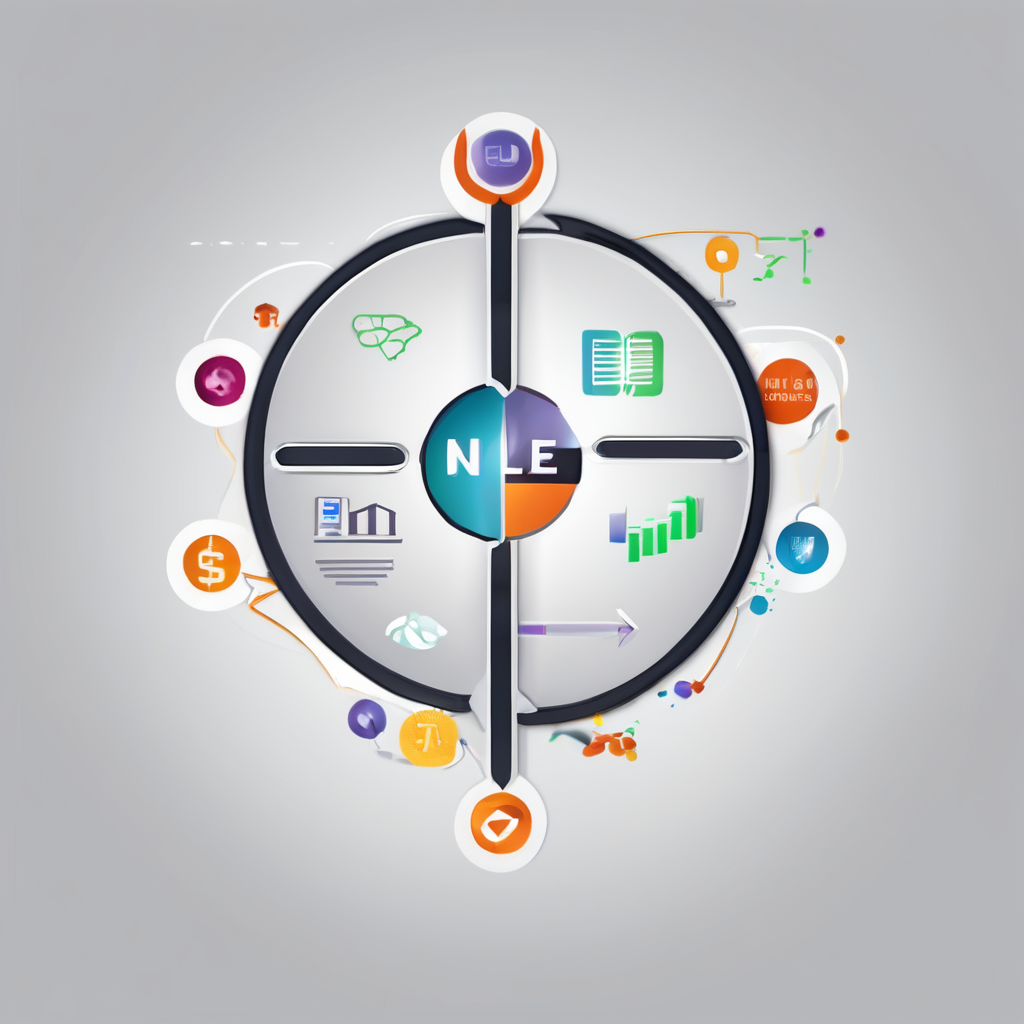Unlocking the Future: A Comprehensive Guide to Effective Digital Transformation in the UK’s Healthcare Sector
The Need for Digital Transformation in Healthcare
The UK’s healthcare sector, particularly the National Health Service (NHS), is at a critical juncture. With increasing demands, limited resources, and the aftermath of the COVID-19 pandemic, the need for digital transformation has never been more pressing. Digital transformation is not just about adopting new technologies; it’s about revolutionizing the way healthcare is delivered, making it more efficient, accessible, and patient-centered.
Challenges Facing the NHS
The NHS faces several challenges that hinder its ability to adopt digital technologies fully. According to a survey by NHS Providers, the top barriers include funding and financial constraints (73%), operational pressures (50%), and inadequate systems and processes (38%).
In the same genre : Top Strategies for UK Banks to Enhance Customer Loyalty and Retention
- Funding Constraints: The lack of sustainable, long-term funding is a significant hurdle. Trust leaders emphasize the need for a more stable financial approach to support digital adoption.
- Operational Pressures: Day-to-day pressures reduce the time and resources available for clinical engagement, training, and technology adoption.
- Inadequate Systems: Outdated IT infrastructure, including issues with Wi-Fi, computers, and multiple logins, hampers the effective use of digital tools.
Leveraging Artificial Intelligence (AI) in Healthcare
Artificial Intelligence (AI) is a cornerstone of digital transformation in healthcare. It has the potential to revolutionize various aspects of healthcare, from diagnostics to resource management.
AI’s Role in Data Contextualisation
AI technologies such as natural language processing and knowledge graphing are crucial in adding context and coherence to unstructured data. This transforms fragmented information into cohesive, optimized datasets, facilitating a more holistic understanding of patient information. For instance, Dyad AI’s solution streamlines clinical processes by identifying pertinent information from clinical correspondence and categorizing it into diagnoses, medications, results, or actionable items.
Topic to read : Transforming challenges into solutions: vallourec's new energies
Streamlining Clinical Processes with AI Automation
AI-driven automation accelerates workflows, enabling healthcare providers to navigate patients towards appropriate care pathways much faster than human capabilities. Here are some key ways AI is streamlining clinical processes:
- Automated Data Analysis: AI can analyze vast amounts of data quickly, reducing the workload on healthcare staff and improving the accuracy of diagnoses.
- Personalized Treatment Plans: AI helps in creating personalized treatment plans by analyzing patient data and medical histories.
- Remote Monitoring: AI-powered tools enable remote monitoring, allowing patients to track their symptoms and communicate with their care teams in real-time.
The Importance of Reliable Connectivity
The efficacy of AI solutions and other digital technologies hinges on reliable connectivity to critical healthcare infrastructure. Here are some key points to consider:
The Crucial Link: Reliable Connectivity
- Access to Critical Data: AI solutions need access to vital services like EMIS and SystmOne, which are reachable via the Health and Social Care Network (HSCN).
- Secure and Scalable Connections: Connections must be secure, scalable, and flexible to accommodate fluctuations in data demand and support new innovations.
- Avoiding Public Internet: Using the public internet as the backbone is often inappropriate due to the sensitivity of patient data and the lack of availability or uptime guarantees.
Partnering for Progress: Selecting Connectivity Providers
Selecting the right connectivity partner is crucial for the successful implementation of digital technologies.
Key Considerations for Connectivity Partners
- Capability to Connect Multiple Endpoints: The partner must be able to quickly connect various endpoints, including clouds, users, sites, and closed third-party networks like the HSCN.
- Security and Scalability: The connections must be secure and scalable with built-in flexibility to accommodate changes in data demand.
- Collaboration with Technology Leaders: Partnerships between technology leaders and clinicians are essential to ensure that AI tools address pressing healthcare challenges.
Case Studies: Real-World Applications of Digital Transformation
Several case studies illustrate the impact of digital transformation in the UK’s healthcare sector.
Tele-Parkinson: Empowering Patients and Clinicians
Tele-Parkinson is an AI-powered tool that allows patients to track their symptoms daily and communicate with their care team in real-time. This tool has significantly improved patient outcomes and reduced the need for frequent appointments.
- Patient Engagement: Patients have greater control over their care, leading to improved self-awareness and more personalized treatment plans.
- Clinician Support: Clinicians receive a continuous stream of accurate, actionable data that enhances decision-making and fine-tunes treatments remotely.
Ideal Health: Supporting Electronic Patient Records (EPR) Implementation
Ideal Health has partnered with several NHS trusts to support the implementation of EPR systems. For example, they worked with King’s College Hospital NHS FT on a comprehensive data validation project to support their EPIC Electronic Patient Record implementation.
- Digital Maturity Assessment: Ideal Health helps organizations assess their digital maturity and develop strategies to enhance care services.
- Training and Change Management: They provide high-quality training and change management support to ensure successful EPR implementation.
Overcoming Barriers to Digital Transformation
Despite the potential benefits, several barriers need to be addressed for successful digital transformation.
Funding and Financial Constraints
A sustainable, long-term funding approach is essential. The UK government has made significant public investments, such as the NHS AI Lab, to support AI development and deployment aligned with national healthcare priorities.
Operational Pressures and Digital Skills
Operational pressures and the lack of digital skills are significant challenges. Trust leaders emphasize the need for more time and resources for clinical engagement, training, and technology adoption. Programs like the Digital Boards programme by NHS Providers aim to support trusts in making big digital and data advances.
System Interoperability
Ensuring system interoperability is crucial. Different systems and processes must be integrated seamlessly to facilitate the smooth exchange of data and improve patient care.
Next Steps: Scaling Digital Innovations
To maximize the impact of digital innovations, a systematic approach is necessary.
Leveraging Existing Solutions
Trusts that have already deployed successful AI tools should be seen as pioneers, and their solutions should be scaled and adapted across the health system.
Collaboration with Clinicians
Collaboration between technology leaders and clinicians is essential to ensure AI tools address pressing healthcare challenges.
Leading with Practical Use Cases
AI should be applied to specific, real-world problems, such as Parkinson’s disease management, to build confidence through success.
Building Confidence Through Success
Scaling should begin with proven use cases in which AI has already demonstrated value before extending to other conditions and challenges.: Embracing the Future of Healthcare
Digital transformation in the UK’s healthcare sector is not just a necessity but a transformative opportunity. By leveraging AI, ensuring reliable connectivity, and addressing the barriers to adoption, the NHS can deliver more effective, efficient, and personalized care.
Key Takeaways
- AI and Data Analytics: AI can improve patient outcomes, optimize resource allocation, and enhance decision-making processes.
- Reliable Connectivity: Secure and scalable connections are essential for the effective use of digital technologies.
- Collaboration and Funding: Collaboration between technology leaders, clinicians, and sustainable funding are critical for successful digital transformation.
- System Interoperability: Ensuring system interoperability is vital for the seamless integration of different systems and processes.
Practical Advice for Healthcare Leaders
- Assess Digital Maturity: Conduct thorough digital maturity assessments to identify areas for improvement.
- Invest in Training: Provide comprehensive training and change management support to ensure successful technology adoption.
- Focus on Patient-Centered Care: Ensure that all digital innovations are patient-centered and improve the quality of care.
As Saffron Cordery, CEO of NHS Providers, noted, “Digital transformation has huge potential to give patients better access to their data, better access to care, and to ensure that staff can get the reliable information they need to inform decision-making and improve quality of care”.
By embracing digital transformation, the UK’s healthcare sector can unlock a future where care is more accessible, efficient, and personalized, ultimately improving the health and well-being of the population.
Table: Key Barriers and Solutions to Digital Transformation in the NHS
| Barriers | Solutions |
|---|---|
| Funding and financial constraints | Sustainable, long-term funding approach |
| Operational pressures | More time and resources for clinical engagement, training, and technology adoption |
| Inadequate systems/processes | Investment in modern IT infrastructure |
| Lack of digital skills | Comprehensive training and change management support |
| System interoperability | Ensuring seamless integration of different systems and processes |
| Limited engagement from some trusts | Programs like the Digital Boards programme to support trusts in making big digital advances |
Detailed Bullet Point List: Benefits of AI in Healthcare
-
Improved Patient Outcomes:
-
AI can analyze vast amounts of data to provide accurate diagnoses and personalized treatment plans.
-
Remote monitoring tools enable patients to track their symptoms and communicate with their care teams in real-time.
-
Optimized Resource Allocation:
-
AI helps in predicting resource needs, reducing waste, and optimizing the allocation of resources.
-
Predictive analytics can forecast patient demand, allowing for better planning and resource allocation.
-
Enhanced Decision-Making:
-
AI provides clinicians with a continuous stream of accurate, actionable data that enhances decision-making.
-
AI can identify patterns and anomalies in patient data that might be missed by human clinicians.
-
Streamlined Clinical Processes:
-
AI-driven automation accelerates workflows, reducing the workload on healthcare staff.
-
Automated data analysis and categorization free up time for clinicians to focus on patient care.
-
Better Access to Care:
-
AI-powered tools can improve patient engagement and self-awareness, leading to better health outcomes.
-
Telehealth solutions enabled by AI can provide access to care for remote or underserved populations.
By understanding these benefits and addressing the challenges, the UK’s healthcare sector can harness the full potential of digital transformation to deliver high-quality, patient-centered care.











